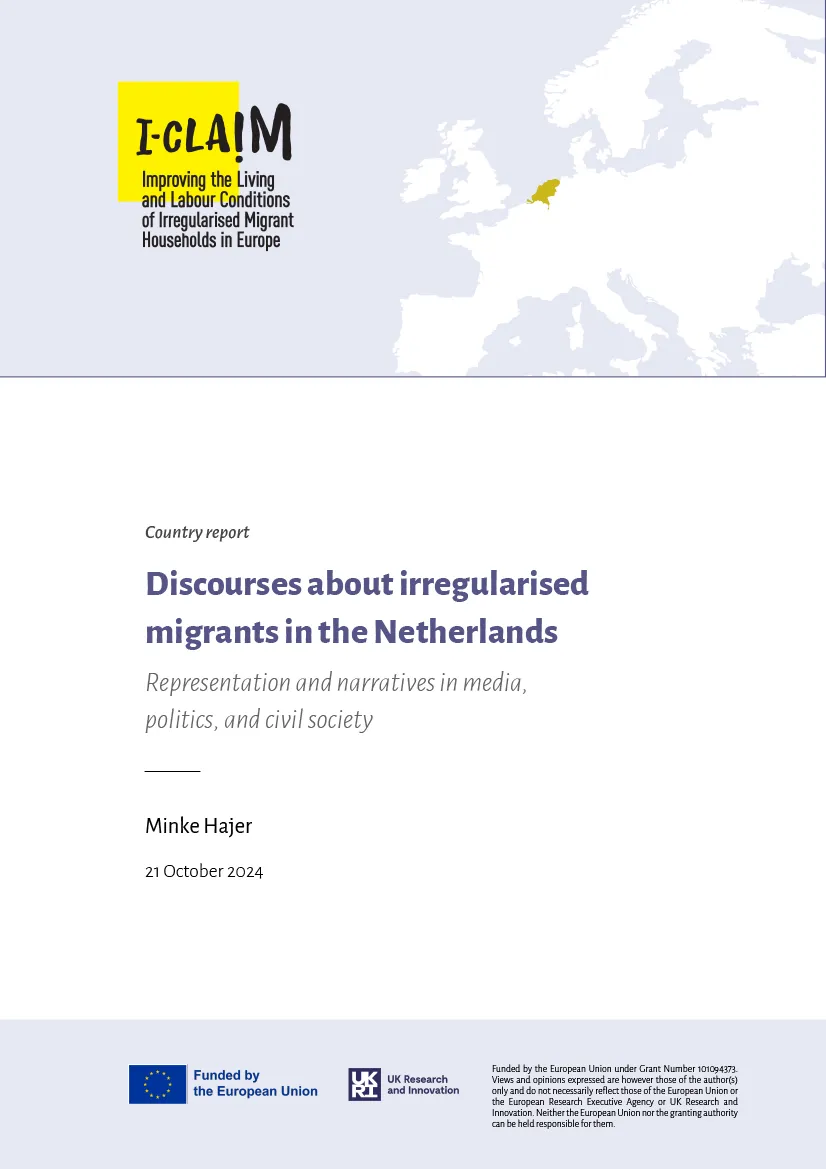Discourses about irregularised migrants in the Netherlands
Minke Hajer
How to cite:
Hajer, M. (2024). Discourses about irregularised migrants in the Netherlands. Representation and narratives in media, politics, and civil society. Country Report. I-CLAIM. DOI: https://zenodo.org/records/15094196
Discourses about irregularised migrants in the Netherlands
Minke Hajer
This I-CLAIM report presents the findings of a corpus-based analysis of the discourses surrounding irregular migration in the Netherlands, with a focus on the terminology and narratives used in media, politics, and civil society. The study reveals important differences in how each domain represents irregularised migrants, their status, and the broader migration issue.
The analysis shows that each domain uses distinct terminology to describe irregularised migrants. In politics, terms such as “rejected asylum seekers” and “alien” are commonly used, while civil society tends to favour the term “undocumented.” The media employs a more varied range of terms, with the notable inclusion of the word “illegals,” which is not used as frequently in the other two domains.
One of the key findings is that the discourse on irregular migration in the Netherlands is highly politicized. Media and political narratives often converge in framing irregular migration primarily as a political issue, particularly with regard to national and local policies, and more broadly as a European concern. Both domains emphasize the challenges posed to migration policy, especially in the context of border control and asylum management. In contrast, civil society discourse focuses more on the human aspects of irregular migration, attempting to humanize migrants through personal stories. However, this humanization is often linked to vulnerability, portraying irregular migrants as dependent on welfare and support.
The report also examines the case of the kinderpardon (child pardon) regularization programme, which serves as an example of how irregular migration is framed in the media, politics, and civil society. In both media and political discourse, the regularization process is framed as a challenge to political parties and migration policy, and it is seen not as a humane response to system failures but as a loophole that undermines the effectiveness of the migration regime. Civil society presents a contrasting perspective, using individual migrant stories to show how the kinderpardon programme, while regularising some children, was ultimately ineffective in addressing the plight of rejected migrant children drawing on testimonies by those affected.
In conclusion, the report highlights the political nature of the discourse surrounding irregular migration in the Netherlands, with both media and politics framing the issue in terms of control and policy. Civil society, while attempting to humanize irregular migrants, often reinforces a narrative of vulnerability and dependence. The absence of work-related narratives further underscores the limited framing of irregular migrants in terms of welfare and social policy, rather than their role as active workers. These findings suggest a need for a more nuanced approach to irregular migration discourse, one that acknowledges the complexity of migrants’ experiences and contributions to society.
